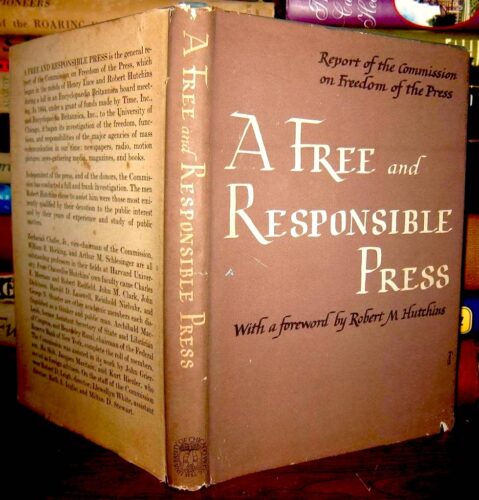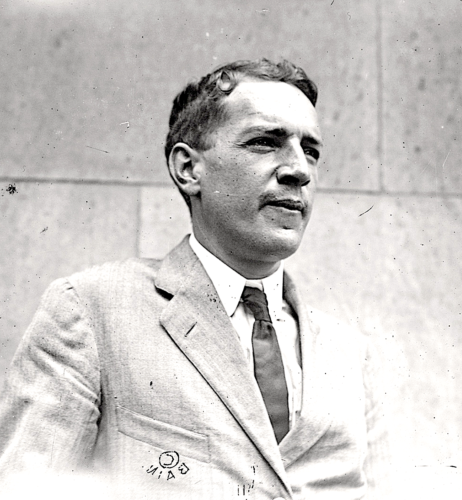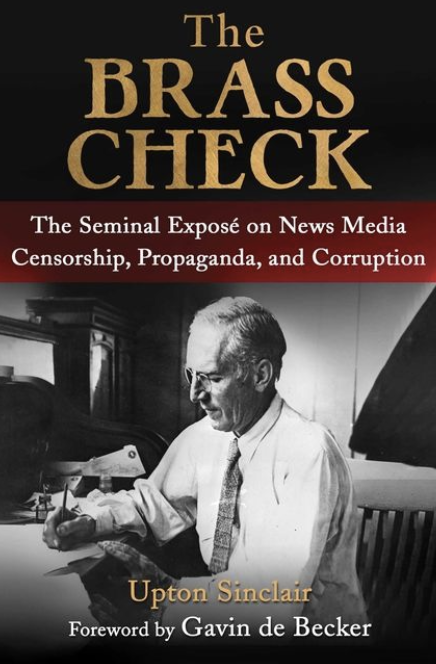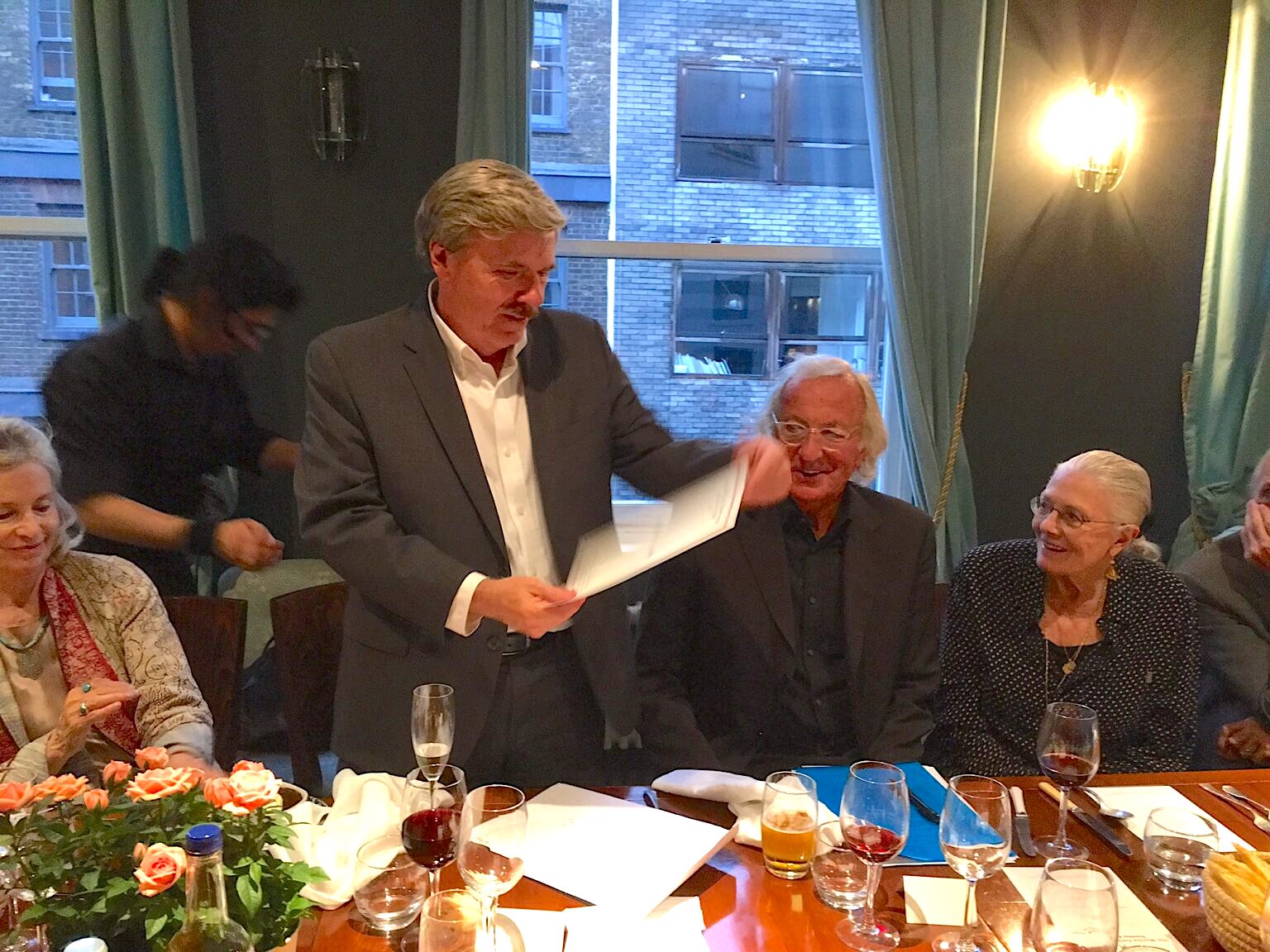Media: Bad Faith & Blank Checks
MEDIA, 11 Sep 2023
Patrick Lawrence | Consortium News - TRANSCEND Media Service

An embedded civilian journalist taking photographs of U.S. soldiers in Dana, Afghanistan, 2007.
(Michael L. Casteel, U.S. Army, Wikimedia Commons, Public domain)
4 Sep 2023 – All mainstream journalism is “embedded journalism” now, for the battlefield is everywhere. An excerpt from Lawrence’s new book, Journalists and Their Shadows.
Some years ago, as the decline of American media became evident even among those not in the profession, friends and acquaintances began to ask two questions. Do journalists believe what they report and write? Or do they know what they tell us is misleading or false but mislead or lie so as to keep their jobs?
I had no ready reply to these queries, but I welcomed them as measures of a healthy loss of faith, another “dis-illusioning.” They suggested a reading and viewing public that was more aware, more alert to the crisis in our media, as the public was when Henry Luce financed the Hutchins Commission. [The commission published A Free and Responsible Press in 1947.]
To attempt a reply to these inquiries now, in journalism today we have a remarkably prevalent case of Jean-Paul Sartre’s mauvaise foi. Bad faith, in terms I hope are not too simplified, comes down to pretending to be someone or something other than oneself. It means surrendering authenticity, that essential value in Sartre’s thinking. In bad faith one enacts a role to meet the expectations of others as one imagines them to be. Sartre’s famous example is the café waiter whose every movement — “a little too precise, a little too rapid” — is an artificial display of what he thinks patrons expect a café waiter to be. In philosophic terms, it is a question of “being-for-others” as against “being-for-itself.”
A former journalist made the point very simply in the comment thread appended to one of my columns. “I was like most of the journalists I knew over the decades I spent off-and-on in the business. I was a faker.”
 This is the American journalist as he or she has come to be, a journalist-for-others. The less he genuinely serves as a journalist — a journalist-for-itself — the more he must hold to the accepted image of the journalist. He is “the man without a shadow,” as Carl Jung put it in another context. Having become another of society’s “de-individualized persons” — Jung again — the journalist role-plays now, in psychotherapeutic terms. Newspapers, in the same way, are at bottom reënactments of newspapers.
This is the American journalist as he or she has come to be, a journalist-for-others. The less he genuinely serves as a journalist — a journalist-for-itself — the more he must hold to the accepted image of the journalist. He is “the man without a shadow,” as Carl Jung put it in another context. Having become another of society’s “de-individualized persons” — Jung again — the journalist role-plays now, in psychotherapeutic terms. Newspapers, in the same way, are at bottom reënactments of newspapers.
To inquiring friends, I now say journalists are not liars, not precisely. “A man does not lie about what he is ignorant of,” Sartre wrote in Being and Nothingness, “he does not lie when he spreads an error of which he is a dupe.” It is our perfect term for the unmoored journalist of our time. We come again to the turning of Descartes upside down. “I think, therefore I am” becomes “I am, therefore I think.” This is what I mean: I am a Washington Post reporter, and these, therefore, are my thoughts and this my understanding of the world I report upon.
Self-deception of the kind I describe is one of two forces sustaining the malpractice of journalism on the newsroom floor. It would be difficult to overstate its power. Breathe fetid air long enough and you have no notion of a spring breeze. I have never met a journalist in the condition of bad faith capable of recognizing what he has done to himself in the course of his professional life — his alienation, the artifice of which he and his work are made. Self-illusioning is a totality in the consciousness.
‘The Brass Check’
The second such force is intimately related to the first and in its practical aspect is still more compelling. I refer here to what Upton Sinclair called, a century ago, “the brass check.” We must now consider money. Is there any self-deception under the sun that money cannot ask for and usually receive?
Sinclair considered The Brass Check one of the two most important books he ever wrote, the other being The Jungle. He self-published it in 1919 and left it un-copyrighted with the thought that it should be freely available. It is a vigorous, 445-page indictment of the American press in all its disfigurement. It is not well-written: The prose is graceless, frequently shrill and dense with dated references. But it is virtuously relentless. It gives us historic ballast with which to understand that the crisis in American journalism today is a story with a long history. For all its peculiarities, the book is especially pertinent to our time. Robert McChesney, the noted media critic, brought out a new edition at the University of Illinois Press in 2003.

Upton Sinclair. (Bain New Service, Library of Congress, Wikimedia Commons, Public domain)
Sinclair was a curious man. He was raised in comfortable circumstances in New York and settled in Pasadena, but there was much of the prairie populist in his contempt for American capitalism. The Brass Check is a condemnation of the power of capital to corrupt the press and Sinclair judged it to corrupt absolutely. “Not hyperbolically and contemptuously, but literally and with scientific precision,” he wrote contemptuously, “we define journalism in America as the business and practice of presenting the news of the day in the interest of economic privilege.”
It is the story of the brass check that drew me back to Sinclair’s book. He heard it while a college student in New York at the turn of the 20th century. Brass checks seem to have been part of the prostitution scene then. A client arrived at his favored bordello and paid the madam for an evening’s pleasure. In return he received a chit in the form of a brass check, and when the woman of his choice took him upstairs, he handed her the chit. At evening’s end the prostitute returned the brass check to the madam. The john went home satisfied (presumably), the lady of the night was fairly paid (presumably), and the proprietor kept control of the money.
The story made a lasting impression on the young Sinclair. “There is more than one kind of parasite feeding on human weakness, there is more than one kind of prostitution which may be symbolized by the BRASS CHECK,” he recalled in the book he published two decades later.
“The Brass Check is found in your pay envelope every week — you who write and print and distribute our newspapers and magazines. The Brass Check is the price of your shame — you who take the fair body of truth and sell it in the market-place, who betray the virgin hopes of mankind into the loathsome brothel of big business.”
That is Sinclair — seething, tipping not infrequently into the purplish prose of outrage. But he makes a strong if histrionic case for his outrage. He confirms a judgment I have earlier suggested. There is vastly more at stake in the misconduct of American journalists today than there was in Sinclair’s time. America has since made itself a global power. It is all the more remarkable to ponder the extent to which the information war that weighs decisively on so many momentous global events is sustained by editors and correspondents whose primary concerns are their everyday material desires — houses, cars, evenings out, holidays. This is what I saw again and again during my years in the mainstream press. This, a problem of proportion, is hard to reconcile, as it was more parochially so in Sinclair’s day, but it is still the problem as he identified it.
Sinclair falls off the deep end as he concludes The Brass Check. “Now, surely, this mystery is a mystery no longer!” he exclaims. “Now we know what the seer of Patmos was foreseeing — Capitalist Journalism! And when I call upon you, class-conscious workers of hand and brain, to organize and destroy this mother of all iniquities, I do not have to depart from the language of the ancient scriptures.” He goes on to quote from Ezekiel.
The Brass Check ends with just such a departure, thankfully. In a section subheaded “A Practical Program,” Sinclair lays out a way forward from the mother of iniquities he has finished parsing.
“I propose that we shall found and endow a weekly publication of truth-telling to be known as ‘The National News,’” he writes. Here is Sinclair on the kind of paper he thought America needed:
“It will not be a journal of opinion, but a record of events pure and simple. It will be published on ordinary news-print paper, and in the cheapest possible form. It will have one purpose and one purpose only, to give the American people once every week the truth about the world’s events. It will be strictly and absolutely nonpartisan, and never the propaganda organ of any cause. It will watch the country, and see where lies are being circulated and truth suppressed; its job will be to nail the lies, and bring the truth to the light of day.”
 This is neither more nor less than an invocation of the ideal of objectivity considered earlier — never attainable, ever to be striven for. “The National News” would carry no advertising, so protecting itself against the coercions of corporate interests. This would require a subsidy so as to keep the price down — a subsidy “large enough to make success certain.” Sinclair defines success as precisely as he does all else: “I believe that a sufficient number of Americans are awake to the dishonesty of our press to build up for such a paper a circulation of a million inside a year.”
This is neither more nor less than an invocation of the ideal of objectivity considered earlier — never attainable, ever to be striven for. “The National News” would carry no advertising, so protecting itself against the coercions of corporate interests. This would require a subsidy so as to keep the price down — a subsidy “large enough to make success certain.” Sinclair defines success as precisely as he does all else: “I believe that a sufficient number of Americans are awake to the dishonesty of our press to build up for such a paper a circulation of a million inside a year.”
No newspaper called “The National News” ever came to be. But we err to conclude Sinclair’s project died before it could be born. I have a good idea Cedric Belfrage and Jim Aronson read The Brass Check, given the book’s excellent sales and enduring reputation. But no matter. When they founded the National Guardian in 1948, they tore a page straight from Sinclair’s book. The project was journalism untainted by power or money and supported by readers who valued the undertaking.
I wish I had read The Brass Check before I went to work in that memoried loft on West Seventeenth Street. It was at the Guardian that I first encountered the inverse relationship that so often obtains between power and money on one hand, and uncompromised, plain-spoken journalism on the other. When I consider how American journalists can find their way out of the crisis to which they have brought the profession, my thoughts arise from those 90-a-week years in my mid-twenties. I can see this now as I could not for a long time after those days came to an end and as my path led elsewhere.
Independent Media
I have never cared for the term “alternative media.” There are only media, in my view. They are of greater or lesser quality, integrity and reliability; they have greater or fewer resources at their disposal and greater or lesser reach. Our media have more or less power, one to the next, and a larger or smaller place in public discourse. But “alternative,” a term that seems to have arisen among other-than-mainstream media themselves, is a great disservice. It places the alternative in a diminished position next to standard-setting superiors, so confirming them as perennially in opposition to a prior version of events. This is no longer remotely the case, if ever it was. The best so-called alternative media are now emphatically for — for discernible truths, for objective accounts of events that stand on their own two feet — accounts, indeed, that often enough have not appeared elsewhere.
“Independent media” is the better and accepted term now — independent of corporate owners and advertisers, of political and institutional power, of prevailing orthodoxies. Although it is not much used, I also favor “nonaligned media.”

Robert Parry receiving the 2017 Martha Gellhorn Prize for Journalism in London on June 28, 2017. Also, from left to right, are Victoria Brittain, John Pilger and Vanessa Redgrave.
Robert Parry, a refugee from the mainstream when he founded Consortium News in 1995, put this point as well as anyone ever has when, 20 years later, he accepted the Neiman Foundation’s I. F. Stone Medal for Journalistic Independence. “To me the core responsibility of a journalist is to have an open mind toward information, to have no agenda, to have no preferred outcome,” he said on that occasion. He then added the summation I quoted earlier: “In other words, I don’t care what the truth is. I just care what the truth is.”
Apart from the sheer dignity of these words, implicit in them is the thought that the place of independent media has fundamentally changed in the last decade or so. The mainstream’s turn toward agenda-driven journalism during the Trump and Russiagate years, so well described by Jim Rutenberg [a New York Times media reporter] and the others I have cited, was decisive, in my view.
Corporate media retain immense influence and continue to enjoy large and loyal followings — there is no suggesting otherwise. But for an ever-growing number of readers and viewers, these media’s subservience to the national security state is greatly more obvious.
 All mainstream journalism is “embedded journalism” now, for the battlefield is everywhere. This places burdens on independent publications far outsized to their means. Let us not allow this circumstance to distract us. It is a matter of independent, nonaligned journalists understanding the responsibilities that fall to them now and then embracing these with alacrity.
All mainstream journalism is “embedded journalism” now, for the battlefield is everywhere. This places burdens on independent publications far outsized to their means. Let us not allow this circumstance to distract us. It is a matter of independent, nonaligned journalists understanding the responsibilities that fall to them now and then embracing these with alacrity.
Mainstream journalists do not often produce the first draft of history, as the creaky adage has it, however much they may or may not have done so in the past. Journalism in our time and by the evidence in many others is the first draft of the accounting of things power prefers so as to keep balanced, factual accounts of events, those bearing on the conduct of empire at home and abroad, out of history books.
Journalists outside the mainstream are thus the historian’s true friends and bear the first-draft duty the historian imposes. The Russiagate affair is a case in point. While the mainstream piled proven fallacies and far-fetched conspiracies one atop another, such mis– and disinformation is unlikely to survive a good historian’s scrutiny given the work independent journalists have written into the record. The task is to force the great unsayable into what is said. This is done whenever journalists speak the language that is not spoken, the language wherein truth resides. It is the task of a press that is truly responsible.
The appetite for this kind of work among readers and viewers is impossible to miss at this point. This, too, confers a responsibility on independent journalists. Readers come to recognize what I have argued severally in my columns: We can no longer read The New York Times, and by extension the rest of the corporate press, to learn of events, to know what happened. We read the Times to know what we are supposed to think happened. Then we go in search of accurate accounts of what happened. Do not take this as an indulgence of cynical wit. The observation arises out of numerous cases wherein this unfortunate reality has proven so.
I am not alone in advocating a top-to-bottom renovation of the craft — meaning a recovery of journalism as an autonomous institution, a pole of power, a Fourth Estate, antiquated as this term may seem.
This transformation is to be accomplished over a long period of time, not by grand convocations or scholarly symposia but in the sheer doing of it. It would be foolish to count on established media to drive this process. They may find their way back from the swamp of subjectivity, or return to their senses on the censorship question, or recover from their altogether curious swoon into “wokery” and “identity politics” in their newsrooms.
But with the history I have reviewed as our guide, there is simply no ground to expect mainstream media to reclaim the independence they long ago surrendered to the national security state — not under present circumstances. I detect only faint signs of debate among these media on this question, the most decisive they face, for they refuse, as they did during and after the Cold War, to recognize the errors, the dysfunction.
Every journalist now practicing faces a choice none was ever trained to confront. “If journalism is anything,” John Pilger said in a television appearance as I wrote this chapter, “you are an agent of people, not power.” This is the choice I mean. It has always been there, but in our time it has become too evident and stark to avoid. It is by way of independent media that journalists can make this choice. There are only media, but the independent among them are destined now to matter ever more.
______________________________________________
Patrick Lawrence’s new book, Journalists and Their Shadows, is out from Clarity Press. A previously published extract can be read here.
 Patrick Lawrence, a correspondent abroad for many years, chiefly for the International Herald Tribune, is a columnist, essayist, author and lecturer. His most recent book is Time No Longer: Americans after the American Century. His Twitter account, @thefloutist, has been permanently censored. His website: Patrick Lawrence
Patrick Lawrence, a correspondent abroad for many years, chiefly for the International Herald Tribune, is a columnist, essayist, author and lecturer. His most recent book is Time No Longer: Americans after the American Century. His Twitter account, @thefloutist, has been permanently censored. His website: Patrick Lawrence
Go to Original – consortiumnews.com
Tags: Anti-NATO, Anti-hegemony, Anti-imperialism, Corporate Media, Fake News, Fake Report, Journalistic Ethics, Mainstream Media MSM, Official Lies and Narratives, Pentagon, USA, War Economy, War Journalism
DISCLAIMER: The statements, views and opinions expressed in pieces republished here are solely those of the authors and do not necessarily represent those of TMS. In accordance with title 17 U.S.C. section 107, this material is distributed without profit to those who have expressed a prior interest in receiving the included information for research and educational purposes. TMS has no affiliation whatsoever with the originator of this article nor is TMS endorsed or sponsored by the originator. “GO TO ORIGINAL” links are provided as a convenience to our readers and allow for verification of authenticity. However, as originating pages are often updated by their originating host sites, the versions posted may not match the versions our readers view when clicking the “GO TO ORIGINAL” links. This site contains copyrighted material the use of which has not always been specifically authorized by the copyright owner. We are making such material available in our efforts to advance understanding of environmental, political, human rights, economic, democracy, scientific, and social justice issues, etc. We believe this constitutes a ‘fair use’ of any such copyrighted material as provided for in section 107 of the US Copyright Law. In accordance with Title 17 U.S.C. Section 107, the material on this site is distributed without profit to those who have expressed a prior interest in receiving the included information for research and educational purposes. For more information go to: http://www.law.cornell.edu/uscode/17/107.shtml. If you wish to use copyrighted material from this site for purposes of your own that go beyond ‘fair use’, you must obtain permission from the copyright owner.